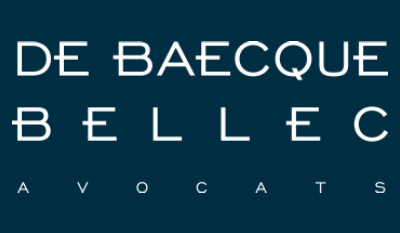The geographical indication Basque linen is approved
A geographical indication (GI) is protected without requiring that the raw materials come from the geographical area. The protection is based on specific know-how and a reputation for quality. The Bordeaux Court of Appeals follows the line of the Court of Cassation on geographical indications. In the GI LINGE BASQUE, it applied the same principles as those used in the GI PORCELAINE DE LIMOGES case.
Geographical indication: main points
The INPI (National Institute of Industrial Property) approved the specifications of the geographical indication (GI) LINGE BASQUE and recognized the union of Basque linen weavers as a defense organization on November 13, 2020.
Two weeks later, the company Les Tissages de St Jean de Luz filed an appeal against this decision. The Bordeaux Court of Appeal rejected its claims in its decision of October 12, 2021.
It should be remembered that geographical indications protect different types of products. Created in 2012, PGIs (protected geographical indications) originally concerned only food products. In 2009, wines were added (and other drinks such as ciders). The Hamon law of March 17, 2014 creates the IGPIAs (geographical indications for industrial and artisanal products), which includes Basque linen.
Geographical indication: conditions of protection
The Bordeaux Court of Appeal relies on the decision of the Court of Cassation rendered in the GI PORCELAINE DE LIMOGES case on April 14, 2021. Referring to Articles L 721-2 et seq. of the Intellectual Property Code, the Court of Appeal focuses on the know-how and reputation of the artisans, rather than on the origin of the raw materials. Thus, the geographical indication protects a product originating from an area and which “possesses a specific quality, a reputation or other characteristics that can be attributed essentially to that geographical origin”.
The court highlights two important notions in the conditions of protection of a geographical indication: the raw materials and the manufacturing process.
Concerning firstly the materials used, the Bordeaux Court of Appeal recalls that there is no requirement that the raw materials must come from the geographical area concerned. The disappearance of linen cultivation in the Basque country is therefore not an obstacle to the protection of Basque linen by a GI.
Secondly, the protection of a geographical indication is conditioned by specific know-how. However, there is no requirement that these manufacturing processes be exclusive to the region. In this case, the weaving tradition is anchored in the Basque country and is known for its quality. It does not matter that Basque weavers are not the only ones who know and use this know-how.
The protection of geographical indications represents an increasingly important issue in the fight against counterfeiting. It is the way to preserve the traditional and qualitative know-how. The drafting of the specifications and the application must be done with the assistance of a lawyer specialized in intellectual property.

Stephane BELLEC
Trademark attorney
Stéphane Bellec, Attorney, Partner Cabinet De Baecque Bellec
Intellectual property attorney
Tél. + 33 (0) 1 53 29 90 00
